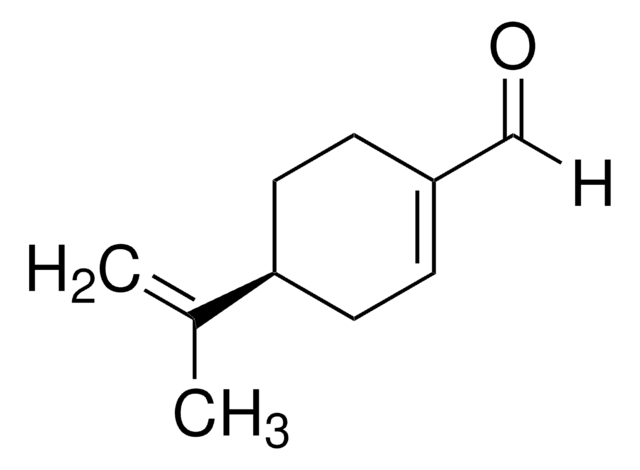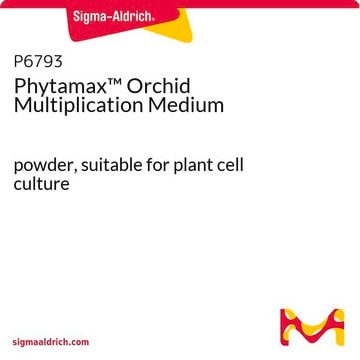77311
(−)-Perillyl alcohol
analytical standard
Synonym(s):
(S)-4-Isopropenyl-1-cyclohexenylmethanol, (S)-p-Mentha-1,8-dien-7-ol
About This Item
Recommended Products
grade
analytical standard
Quality Level
Assay
≥98.0% (sum of enantiomers, GC)
optical activity
[α]20/D -88±2°, c = 1 in methanol
technique(s)
HPLC: suitable
gas chromatography (GC): suitable
refractive index
n20/D 1.501
density
0.959 g/mL at 20 °C (lit.)
application(s)
cleaning products
cosmetics
flavors and fragrances
food and beverages
personal care
format
neat
storage temp.
2-8°C
SMILES string
CC(=C)[C@H]1CCC(CO)=CC1
InChI
1S/C10H16O/c1-8(2)10-5-3-9(7-11)4-6-10/h3,10-11H,1,4-7H2,2H3/t10-/m1/s1
InChI key
NDTYTMIUWGWIMO-SNVBAGLBSA-N
Looking for similar products? Visit Product Comparison Guide
Application
Recommended products
Signal Word
Warning
Hazard Statements
Precautionary Statements
Hazard Classifications
Eye Irrit. 2 - Skin Irrit. 2 - STOT SE 3
Target Organs
Respiratory system
Storage Class Code
10 - Combustible liquids
WGK
WGK 3
Flash Point(F)
230.0 °F - closed cup
Flash Point(C)
110 °C - closed cup
Personal Protective Equipment
Choose from one of the most recent versions:
Certificates of Analysis (COA)
Don't see the Right Version?
If you require a particular version, you can look up a specific certificate by the Lot or Batch number.
Already Own This Product?
Find documentation for the products that you have recently purchased in the Document Library.
Our team of scientists has experience in all areas of research including Life Science, Material Science, Chemical Synthesis, Chromatography, Analytical and many others.
Contact Technical Service







